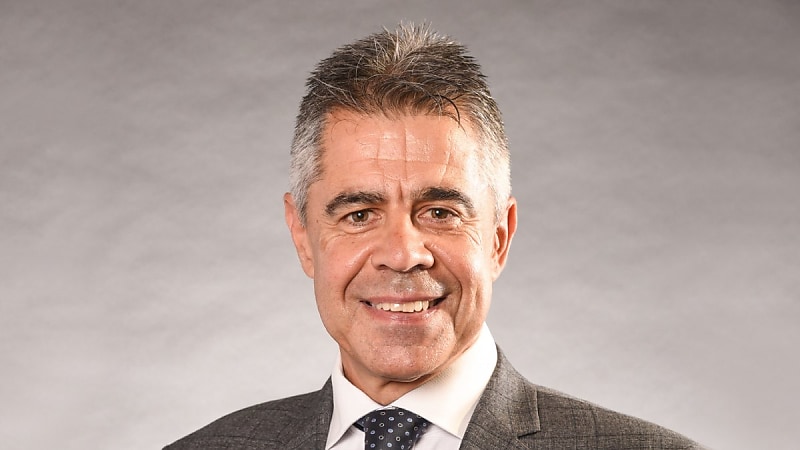SMSFA says it is time for government to take Div 296 ‘off the table’
It’s time the government takes the Division 296 tax “off the table” and listens to industry concerns, the SMSF Association has said.
Peter Burgess, chief executive of the SMSF Association, told delegates at the association’s annual conference in Melbourne that although the Division 296 tax stalled in the Senate, it is still government policy.
“But for me, there is one emotion right now that stands out when I think about Division 296 and it's this, ‘thank God, common sense has prevailed and this bill was blocked by the Senate’,” Burgess said.
“It's not for me to give advice to the government or Treasury, but it is time that they take this bill off the table. Listen to the concerns of the industry and work with industry on a solution to the problem the government is trying to solve. This is all that we've been saying over the last few years.”
Burgess said the SMSFA has been a “thorn in the side of the government” since the tax proposal was released and he said he makes no apology for that.
“Whichever political party is in place, we will always stand against bad policy and this is bad policy.”
He outlined the association’s strategy in fighting the introduction of the taxing of unrealised gains, from the beginning of 2024 until October last year, and said it has always been to try and salvage what it could “from a badly designed tax”.
“We were of the view that it was going to be extremely difficult to get this bill blocked in the Senate. We did expect that it would come down to the Senate crossbench. We knew the Greens probably support it, but that the Coalition wouldn't, which meant the government only needed three crossbench votes to get this bill over the line,” he said.
“There are 10 crossbenchers and the government only needed three so it appeared to us that we, the industry, faced an impossible task of trying to get this bill blocked. We also knew the Albanese government had quite a lot of success with the Senate crossbench so if this bill was going to be blocked, it was going to be the exception to the rule.”
He continued that the association worked on constructing amendments including the indexation amendment and calculating earnings, but he said it was only in October that the magnitude of the battle became apparent.
“It was October when we got our first look at the Senate crossbench and our first opportunity to sit down with each one of those 10 members and talk to them about this tax, how this tax will be calculated, and why this tax had been designed the way it had,” Burgess said.
“It's fair to say that we had significantly underestimated their willingness to vote against a tax on unrealised capital gains and also to vote against a tax that had been designed for the large funds with no regard to the carnage that would have created not just to the SMSF sector but also the broader community.”
He said the government had actually “kicked an own goal” with the introduction of taxing unrealised capital gains.
“The unique and unconventional design of this tax and the desire of the government and Treasury to cater for the needs of the large funds, there was no way they could fix the taxing of unrealised capital gains without sending this bill back to the drawing board,” he said.
“We knew the government had no desire for that and from that point on, it was all about blocking this bill. We knew that we were in with a chance of getting this bill blocked and were confident we had eight votes that would stand up against this bill.”
Following that, he said the strategy was about educating the crossbench, and the association organised meetings between them and industry leaders, CEOs of venture capital firms and even a high-profile biomedical scientist about the role SMSFs have played in funding research in the medical sector, and how medical breakthroughs had been the result.
“We also co-ordinated data, using some of our own and those of key stakeholders in our industry, such as the Council of Small Business Organisations Australia, the Business Council of Australia, and the National Farmers’ Federation,” Burgess added.
“When the morning of 30 November came around, that chaotic morning when the government was attempting to add this bill to a guillotine motion to get it passed, we were confident that the crossbench would stand up against it, and stand up against it they did.”
 Hear! Hear! Thank you Peter. Thank you so much, all of the Team at SMSFA.
Hear! Hear! Thank you Peter. Thank you so much, all of the Team at SMSFA.
Having the government take this off the table would be ideal. Will they? I am not so sure. This has been an awful stressful time which has lead to, in our case, us selling our business in preparation for retirement, earlier than we had wanted. We are certainly ready for retirement now as we just do not have it in us any longer, and this was the last straw for us.
If Div 296 came through, we wanted to be able to move assets if we needed too, and seeing how we have been treated, we felt that it was about time that we got to enjoy the fruits of our labor and sacrifice, rather that let the government take it from us. It is now our time!
Unfortunately, I still feel like the sword of Damocles is hanging over us with this, and wondering if not this (Div 296) then what. This debacle has shown the desperation of the Labor party and they will lie and cheat (cheating yes because they spin the truth to suit them) to get power and stay in power. They also need to feed the enormous bill that they are building for our future generations to somehow pay. I wish that they would stop wasting our taxpayer dollars and start rebuilding after the horror that was Covid and the massive expenditure that was required to get us through that, as unscathed as possible.
If it was up to Labor, we all know that the expenditure during Covid would have been significantly higher. They blame the Liberal party for the state of the budget that they inherited but refuse to acknowledge that they constantly pushed for more during that awful time. This is what I mean by cheating. Labor stretch the truth and put so much spin on it that no one knows the truth anymore.
Hopefully, the sword of Damocles has a new target - the Labor party.
Do they have the courage to 'take this of the table' publicly? Time will tell. I wish, but I do not personally believe that they will. I think that they just want it to die a quiet death. Another huge waste of taxpayer dollars.
0













